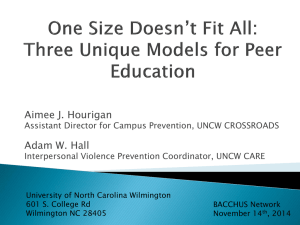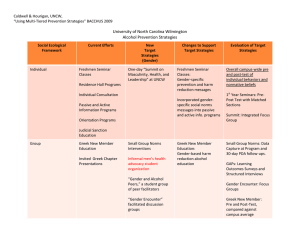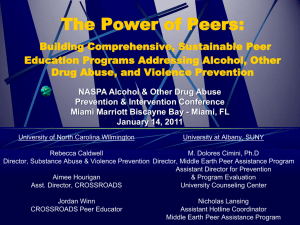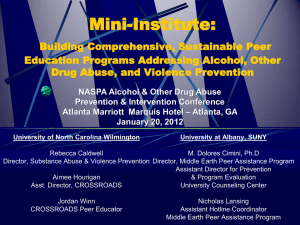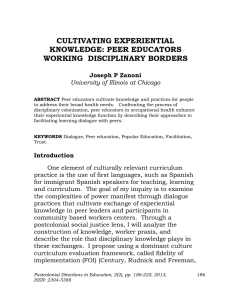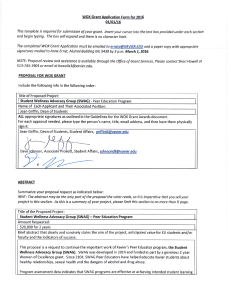Peer Education as a Component of a Comprehensive Prevention Program
advertisement
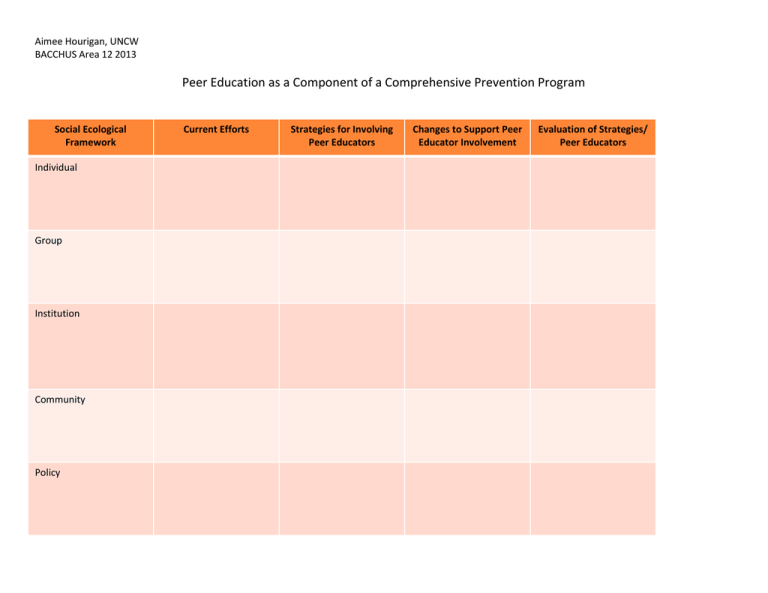
Aimee Hourigan, UNCW BACCHUS Area 12 2013 Peer Education as a Component of a Comprehensive Prevention Program Social Ecological Framework Individual Group Institution Community Policy Current Efforts Strategies for Involving Peer Educators Changes to Support Peer Educator Involvement Evaluation of Strategies/ Peer Educators Aimee Hourigan, UNCW BACCHUS Area 12 2013 What is important to students on your campus? What does your institution value? Describe your institution in three words or phrases. How can you use these characteristics to engage students? What issue or event have students gotten excited or worked up about lately? What component of your current prevention strategy are you most proud of? Why? What evidence do you have that it is changing student behavior? What component of your current prevention strategy is the weakest? What can you do to change it? What evidence do you have that it is not changing student behavior? What campus or department “traditions” do you most dread? How can you change them to fit your strategy? What students are not being reached by your current strategy? Where are they? What are your first steps?
